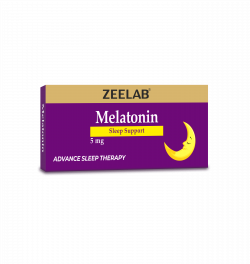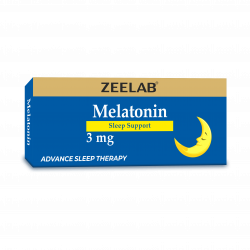Trouble Sleeping? These Vitamins and Minerals May Help


Struggling to fall asleep every night? You’re not alone. Millions face sleep issues that affect their energy, focus, and health. The good news? Vitamins and minerals for sleep can help naturally improve your sleep cycle. In this blog, we’ll explore essential nutrients that support better sleep and how they work.
How Does Magnesium Help with Sleep?
Magnesium plays a critical role in calming the nervous system and promoting deep, restful sleep. It boosts GABA, a chemical that calms the brain.
- Reduces anxiety and stress levels
- Improves sleep quality and duration
- Supports melatonin production
People with low magnesium levels often experience restless nights and difficulty staying asleep.
Can Vitamin D Deficiency Affect Sleep?
Yes, low Vitamin D levels have been linked to poor sleep patterns and insomnia. This vitamin helps regulate circadian rhythms and reduces inflammation that can interfere with rest.
- Supports mood and hormone balance
- Helps reduce the risk of sleep apnea
- Enhances daytime alertness
If you're not getting enough sunlight or dietary sources, consider increasing your Vitamin D intake.
Does Vitamin B6 Improve Sleep Quality?
Vitamin B6 helps your body produce serotonin and melatonin—both vital for healthy sleep. It also supports brain health and emotional stability.
- Promotes better sleep onset
- Reduces sleep disturbances
- Enhances mood regulation
Low B6 levels can lead to irritability and sleeplessness.
How Does Calcium Impact Sleep?
Calcium aids melatonin production from tryptophan. A calcium deficiency might lead to disrupted sleep patterns or difficulty staying asleep.
- Encourages deep sleep cycles
- Reduces leg cramps at night
- Works with magnesium for relaxation
A balanced intake of calcium supports uninterrupted rest.
Is Zinc Useful for Better Sleep?
Zinc supports neurotransmitter function and has been linked with improved sleep quality and longer sleep duration.
- Enhances REM sleep
- Supports immune health while you sleep
- Works synergistically with magnesium and melatonin
Zinc is particularly effective when taken in combination with other calming nutrients.
Can Iron Deficiency Lead to Sleep Issues?
Yes, iron deficiency is a common cause of restlessness and insomnia, especially in women. It can also be linked to Restless Leg Syndrome (RLS), which interrupts sleep.
- Aids oxygen transport for brain function
- Prevents fatigue and drowsiness during the day
- Reduces chances of nighttime awakenings
Make sure your iron levels are adequate through diet or supplementation.
What Role Does Melatonin Play in Sleep?
Melatonin is your body’s natural sleep hormone. Though not a vitamin or mineral, it’s worth mentioning because it's essential for initiating sleep.
- Regulates your internal clock
- Helps you fall asleep faster
- Improves sleep-wake consistency
Melatonin drops with age, causing sleep issues.
Best Sleep Support Supplement in India
| Product Name | How It Supports Sleep & Wellness |
|---|---|
| Melatonin 10 mg Capsule | High-dose melatonin helps with insomnia, jet lag, and sleep reset. |
| Melatonin 5 mg Tablet | Moderate dose to support natural sleep induction, reduce restlessness, and promote relaxation. |
| Melatonin 3 mg Tablet | Low-dose option ideal for mild sleep disturbances, suitable for daily or occasional use. |
Which Supplement Combines These Vitamins and Minerals?
For those looking for a holistic solution, some supplements combine magnesium, zinc, B-complex, and melatonin to promote sleep health.
These formulations help you sleep faster and longer—without grogginess the next day.
Frequently Asked Questions
Q. Which vitamin deficiency causes poor sleep?
A. Deficiencies in Vitamin D, B6, and magnesium are most commonly linked to sleep issues.
Q. Can I take vitamins for sleep daily?
A. Yes, but always follow the recommended dosage or consult a healthcare provider.
Q. How long does it take for sleep vitamins to work?
A. Some may show effects within a few days, while others like magnesium may take a couple of weeks.
Q. Are natural sleep vitamins safe?
A. Most vitamins and minerals are safe if taken in appropriate doses. Avoid overdosing or mixing without guidance.
Q. Do sleep supplements cause morning grogginess?
A. High-quality, balanced formulas usually avoid this. Look for non-drowsy blends with magnesium and B vitamins.
Conclusion
If you're facing difficulty falling or staying asleep, these vitamins and minerals may help. Nutrients like magnesium, Vitamin D, and B6 support natural sleep cycles and reduce stress levels that interfere with rest. Always opt for clinically-backed supplements and follow dosage instructions carefully.
Better sleep is just a nutrient away.











 Added!
Added!